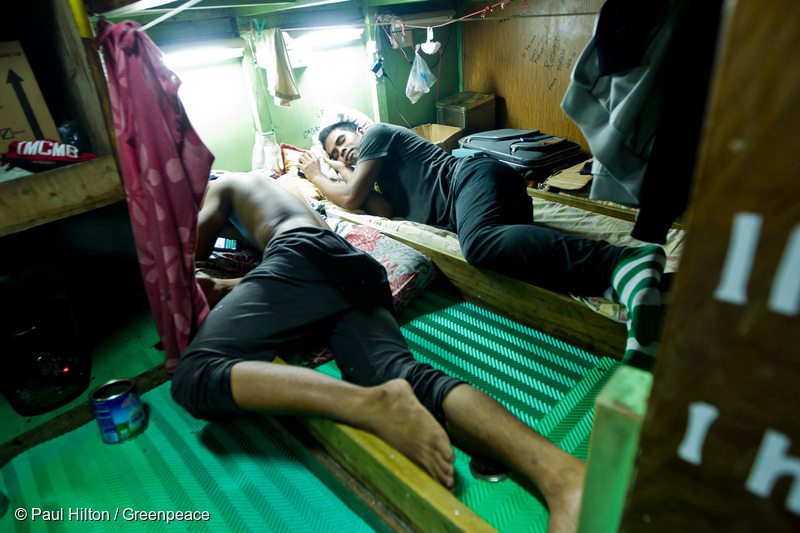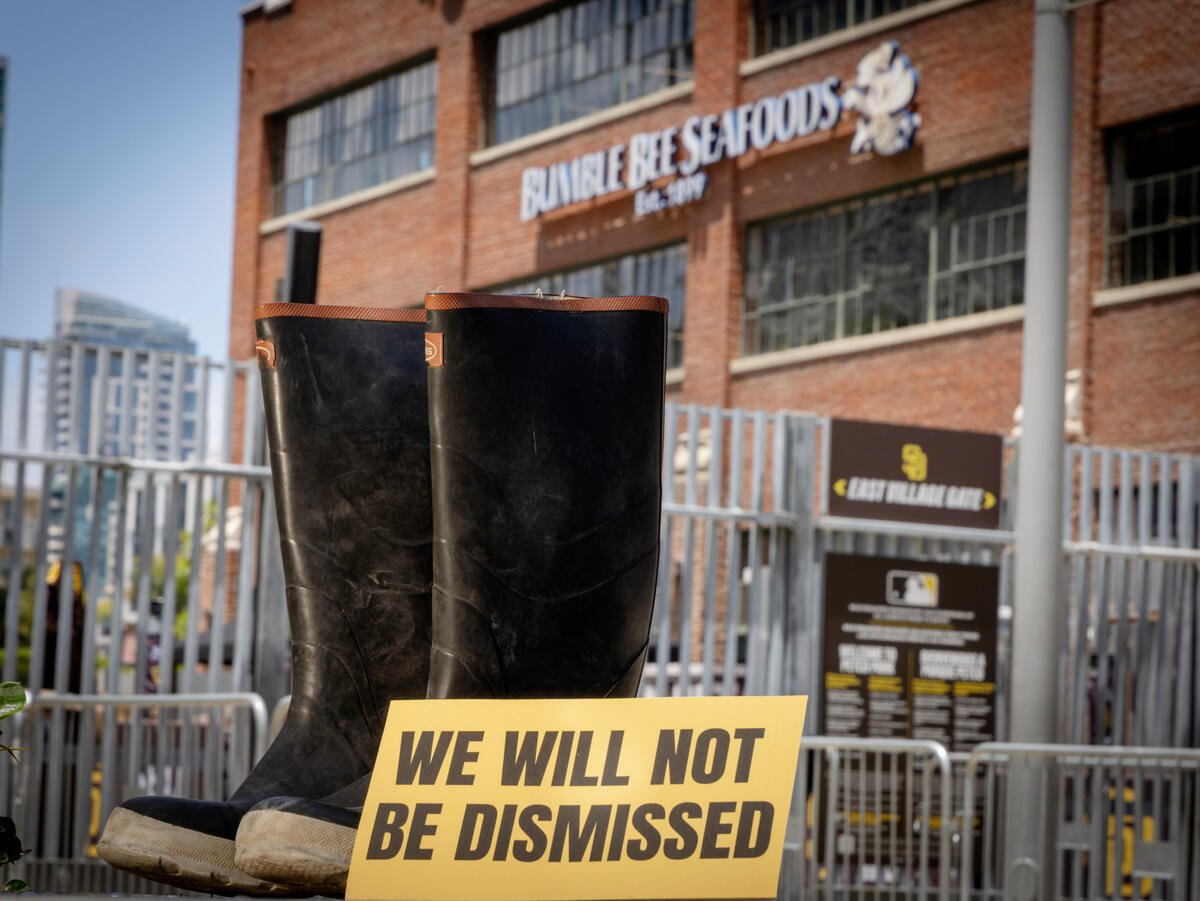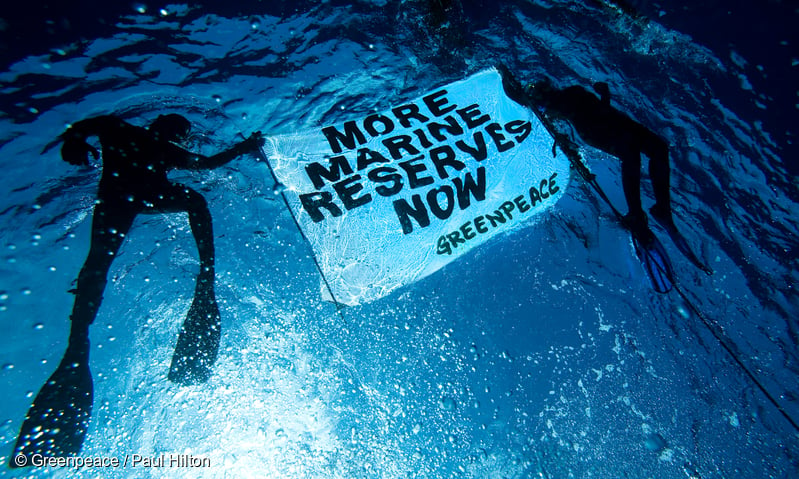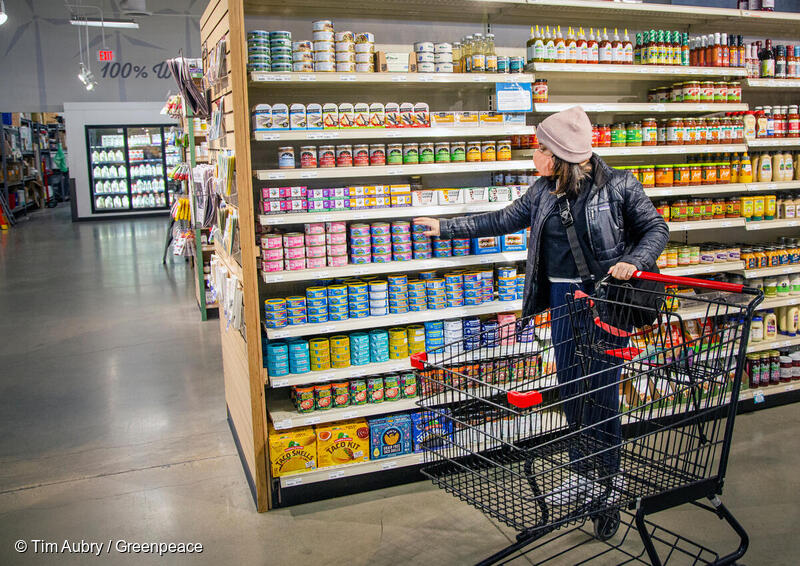Top-tier rankings for Taiwan and Indonesia despite evidence of abuse

Washington, D.C. (Sept. 30, 2025) – The U.S. government has once again awarded unmerited rankings in its annual Trafficking in Persons (TIP) Report to two major players in the global seafood supply chain — Taiwan and Indonesia — despite acknowledging widespread forced labor, human trafficking, and weak government responses in both. Taiwan, home to one of the world’s largest industrial fishing fleets, received a Tier 1 ranking for the 16th consecutive year, while Indonesia, whose citizens comprise a significant portion of the crew on Taiwanese vessels, was placed in Tier 2. Greenpeace USA, Greenpeace Southeast Asia, and coalition partners submitted detailed evidence of human rights issues to the TIP report and called for both Taiwan and Indonesia to be downgraded.
Sari Heidenreich, Greenpeace USA senior human rights advisor for global fisheries, said: “The thousands of victims of human trafficking who have been failed by the Indonesian and Taiwanese governments deserve better. By refusing to act — even as it acknowledges the link between forced labor and destructive fishing practices — the U.S. is signalling that it is acceptable to fail victims and maintain systems that allow for ongoing exploitation. Congress must step up to protect these essential workers, wherever they are, and keep seafood tainted by modern slavery off American dinner plates.”
Combating human trafficking globally has long been a U.S. priority with bipartisan support. The report was released three months past its congressionally established deadline, part of the Trump Administration’s short-sighted dismantling of key government programs and offices tasked with protecting the U.S. from seafood linked to fraud, forced labor, and environmental harm. That included a 70% staffing cut to the State Department’s Office to Monitor and Combat Trafficking in Persons, along with rollbacks at the International Labor Relations Bureau and the National Oceanic and Atmospheric Administration.
Heidenreich continued: “The maintenance of a failed status quo, coupled with the delayed report release and weakening of safeguards, directly contradicts the Administration’s stated goals of combating human trafficking and ‘Restoring American Seafood Competitiveness.’ The Trump administration must back its words with actions by resourcing these vital programs and downgrading both Taiwan and Indonesia.”
Taiwan is home to one of the largest industrial fishing fleets in the world, and Greenpeace East Asia has repeatedly called out the Taiwanese government on its lack of action to address issues that lead to systemic forced labor in the fishing industry.
Shay Kuo, Greenpeace East Asia Taipei ocean campaigner, said: “It is deeply concerning that we continue to see a lack of meaningful progress from the Taiwanese government. The Taiwanese government’s failure to address key civil society demands like mandatory Wi-Fi on fishing vessels, requiring ships to return to port more frequently, full implementation of electronic surveillance, and eliminating high brokerage fees paid by workers will remain a major obstacle to protecting the industry’s most vulnerable workers.”
This year, for the first time, Greenpeace Indonesia, in partnership with a coalition of organizations, jointly submitted comments to the U.S. State Department on Indonesia’s efforts to combat human trafficking. They called on the State Department to downgrade Indonesia to the Tier 2 Watchlist.
Fildza Nabila, Greenpeace Indonesia oceans campaigner representing the Indonesia coalition, said: “Indonesia’s continued placement at Tier 2 in this year’s TIP Report overlooks the gravity of the situation in Indonesia. Civil society groups have documented extensive evidence throughout 2024 pointing to a lack of meaningful progress in addressing trafficking in persons, particularly in the fishing sector. Twelve migrant fishers whose cases remain unresolved more than a year after being reported are among many victims still denied justice. The government has failed to identify victims, prosecute traffickers, or curb deceptive recruitment practices. The coalition urges the Indonesian government to confront this crisis head-on, prosecute traffickers, and end the cycle of exploitation across the recruitment chain.”
The Greenpeace global network’s Beyond Seafood Campaign has called for concerted action by all stakeholders and governments along the supply chain to end the practice of isolation at sea. This includes:
- Free, accessible, and secure Wi-Fi on all fishing vessels to allow fishers to have contact with their families, unions, and governments.
- Capping time at sea at three months to reduce the risk of human rights abuse, forced labor, and human trafficking.
- 100% human or electronic observer coverage to ensure vital data on catch composition, bycatch, interactions with protected species, and overall fishing practices are reported by independent and impartial parties.
Freedom of association and access to unions for workers are key enabling rights to ensure a strong worker voice and protections across the various stages of the supply chain. It is essential to have accessible grievance mechanisms, including those available at sea, that are secure and responsive. These mechanisms should allow workers to raise issues as they arise, and companies must respond promptly, providing remedies and directly addressing the root causes of the problems.
Heidenreich continued: “Regardless of the U.S. government’s continued failure to act, the seafood industry, including retailers and producers, has a responsibility to both workers and consumers. It is outrageous that, given clear evidence of systemic and persistent abuses, the seafood industry continues to profit from a business model built on modern slavery. These corporations can no longer afford to wait for the government to do what is necessary—they must take immediate, decisive action to address the deep-rooted exploitation within their seafood supply chains.”
Contact: Tanya Brooks, Senior Communications Specialist at Greenpeace USA, [email protected]
Greenpeace USA Press Desk: [email protected]
Greenpeace USA is part of a global network of independent campaigning organizations that use peaceful protest and creative communication to expose global environmental problems and promote solutions that are essential to a green and peaceful future. Greenpeace USA is committed to transforming the country’s unjust social, environmental, and economic systems from the ground up to address the climate crisis, advance racial justice, and build an economy that puts people first. Learn more at www.greenpeace.org/usa.



